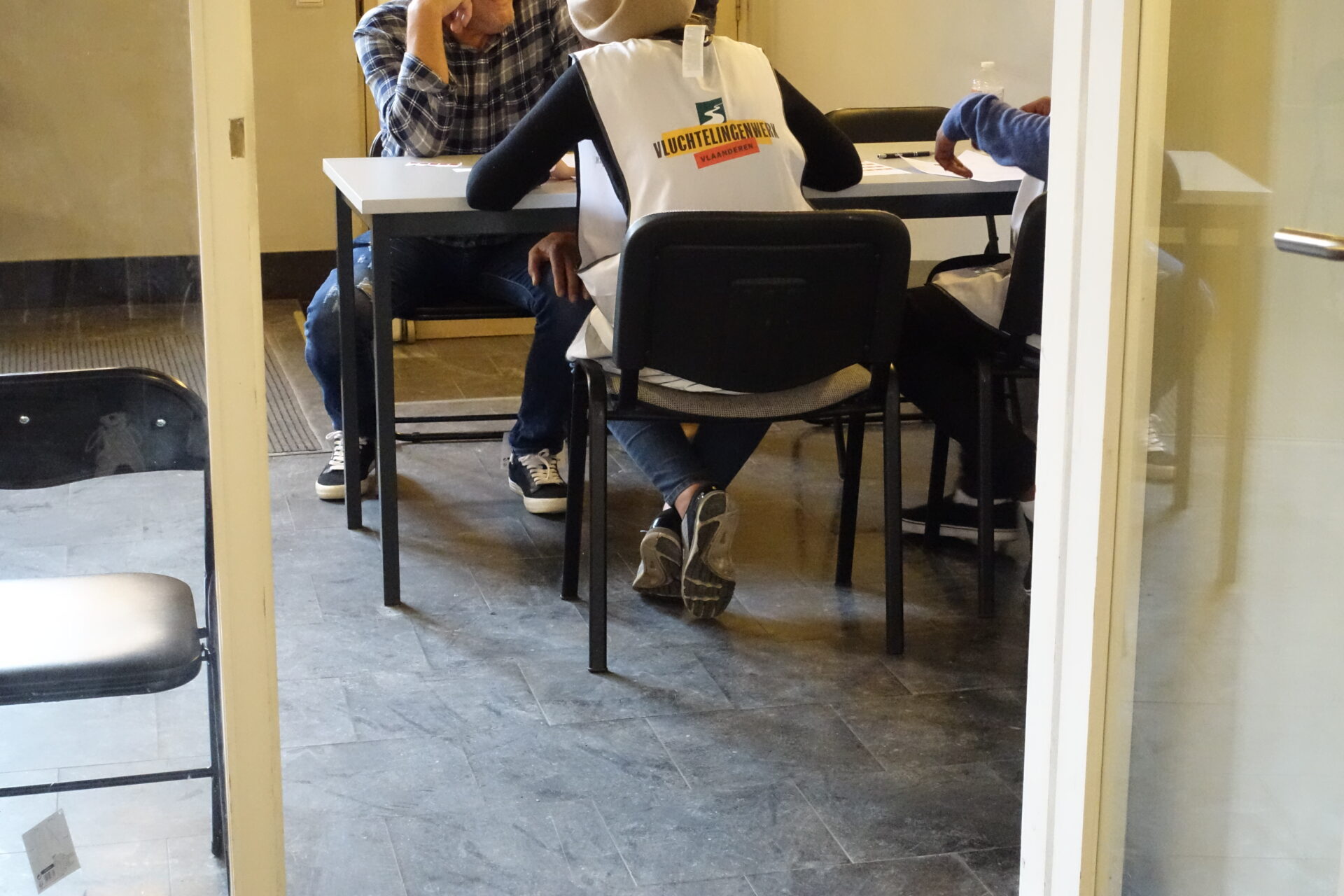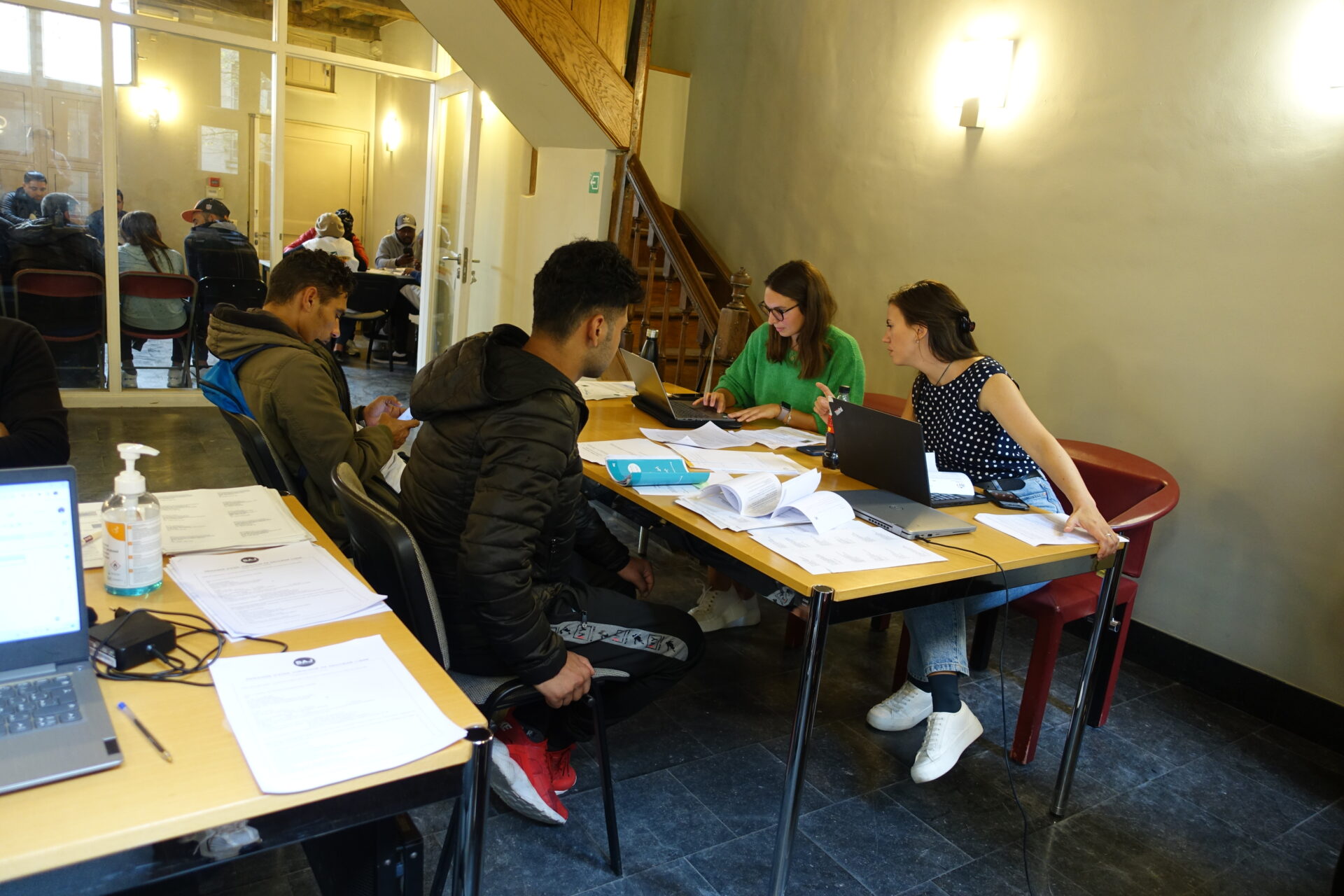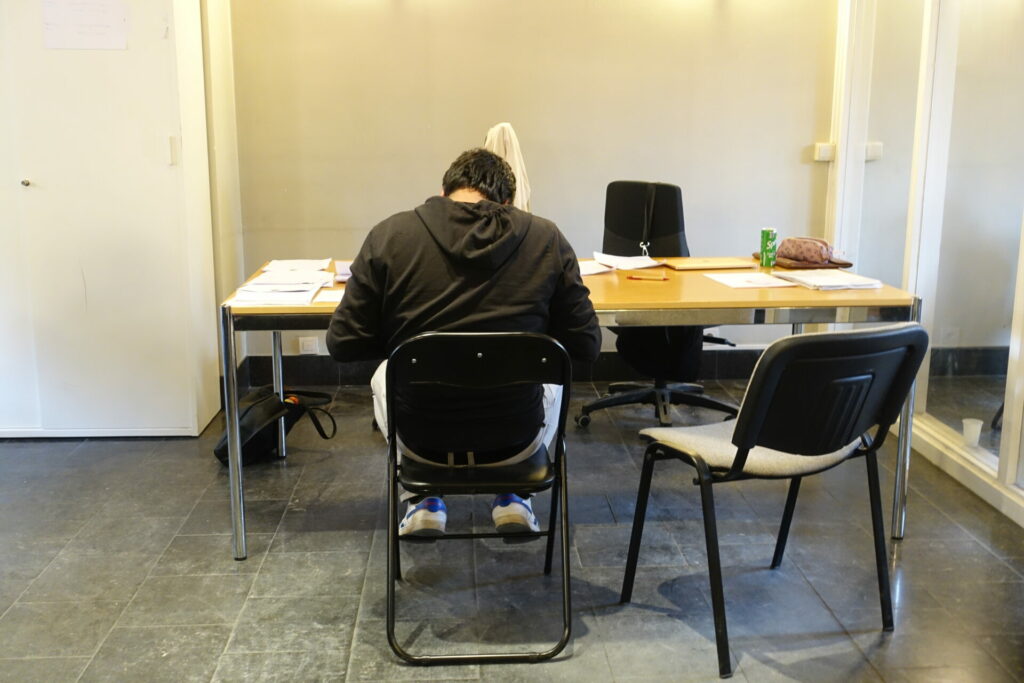From the outside, it's not much to look at: a beige building in the city centre that could almost be abandoned. Yet at certain times of the day, this nondescript edifice sees dozens of asylum seekers wait in line to receive legal aid.
One man and woman waiting in line are siblings. Despite applying for asylum in a family context, only the woman received shelter. While she has been living in a Fedasil reception centre, the man has been sleeping rough for the six weeks since they arrived in Brussels.
"I wasn't given a sheltered place even after telling them about my medical issues and that I have a sister. I see so many others like me out on the streets," the man (who wished to remain anonymous) told The Brussels Times.
Many of the "others" he refers to are among those who come to the building, where the Voyaach Helpdesk has set up shop. This collaborative initiative, the first of its kind in Brussels, consists of lawyers from 30 law firms and supports asylum seekers by providing them with access to legal aid when their rights to basic services, such as shelter, are denied.
They started working together with the Brussels Bar Association and NGO Vluchtelingenwerk Vlaanderen in April 2022 after Fedasil, Belgium's Federal Asylum agency, started denying shelter to single men seeking asylum.
Holding Fedasil to account
"At first, there was a lot of energy amongst the volunteers because the work we were doing was getting tangible results," Ana Sofia Walsh, a Fragomen lawyer and volunteer at the Helpdesk, told The Brussels Times.
So far, it has supported more than 3,000 asylum seekers, the majority of whom obtained a favourable decision against Fedasil, which means they have to be provided with a sheltered place.

An asylum seeker at the Helpdesk. Credit: Lauren Walker
"At the start, it was a more straightforward and predictable process. Usually, 10 to 14 days went by between the time that an individual was assigned a lawyer, the case was taken to court and they had a favourable decision."
But much has changed in recent weeks. On 11 October, the lack of sheltered places became so acute that minors were left sleeping on the streets. One week later, they were joined by families with children. Until that point, both groups were given priority for shelter.
Left waiting for months
By the end of May, the team started noticing that the process to assist asylum seekers was taking longer.
"Over the summer, it was sometimes taking a month between the positive decision being granted and shelter being provided by Fedasil. By the time the summer was over, some cases that received a favourable decision in May or June weren't being taken up by Fedasil," Walsh said.
In some cases, asylum seekers who the court ruled should be given shelter were left on the streets for up to three months after the decision. Some are still living on the street when they go for their interviews with the Commissioner General for Refugees and Stateless People; others even by the time they get refugee status.

Two asylum seekers receive assistance from the volunteers. Credit: Lauren Walker
They are faced with setbacks at every turn and are being sent from pillar to post, Thomas Willekens from Vluchtelingenwerk Vlaanderen said. "I spoke to one person who was recognised as a refugee but never got a place to stay. Because he has no address, the municipality will not issue him with an A-card, meaning he can't open a bank account."
Walsh added that the helpdesk has to "continually evolve to meet these additional demands."
Many of the asylum seekers coming to the Helpdesk don't understand the complications, which can lead to exasperation and anger. "We understand their frustration because many of these people took so many risks to get here. Now they are here and they just end up on the streets."
Putting the burden on volunteers
The situation is also taking a toll on the volunteers working day and night to help asylum seekers: "The government is not only eschewing the legal but also the emotional aspects. It really does take an emotional toll on all the volunteers – especially when minors are involved," Walsh said.
She added that some decisions aren't being implemented, which is jarring for the lawyers. "Going against the courts of justice sets a very dangerous precedent. We are wondering when others will come to a point and say: 'This is not okay'."
Related News
- Large humanitarian response needed to stem crisis, says State Secretary for Asylum
- 'Like a war zone': 20-month-old baby with malaria left out on Brussels streets
The Helpdesk expected to stop operations in May but has now extended its stay until next year. Despite Belgium confirming that 1,500 additional sheltered places will be created for asylum seekers by December, Walsh asserts that this won't be enough to solve the issue.
She stressed that the legal work being done is still effective, even if the process takes more time. "If we weren't doing what we are doing, they wouldn't have access to this legal assistance and they would not be helped. In general, the feeling is we should not give up, but it is definitely taking an emotional toll on the lawyers and volunteers."

